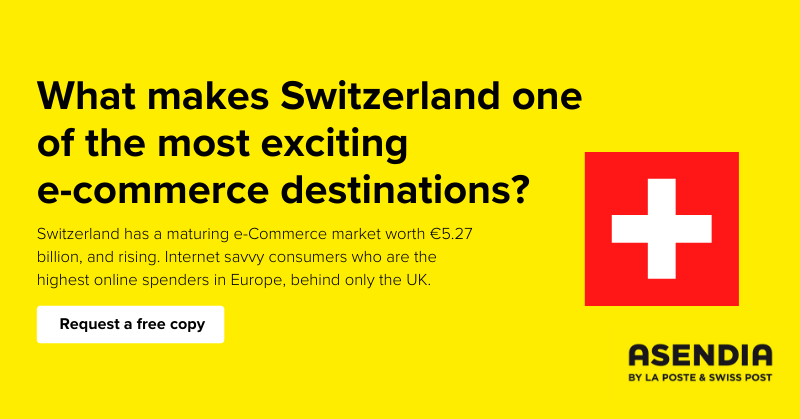Dominik Schaller, product manager for Asendia Switzerland, on how to navigate the Swiss customs-clearance process and seize the potential of this highly developed market.
Switzerland may be a relatively small market, but it offers substantial revenue potential thanks to its well-established trade links, stable political climate, good legal system and strong financial position. According to the World Economic Forum, it has been the most competitive economy in the world for the past eight years.
Swiss consumers have also been quick to embrace technology, have a high purchasing power and cross-border purchases represent 10 per cent of all consumer spending – an annual sum of CHF 3bn – so there are clearly significant export opportunities for international companies.
How to appeal to the Swiss customer
Prices are generally high in Switzerland, which gives foreign players the chance to stand out from the competition by being more affordable. Shoppers tend to place more value on reliability than speed of delivery, and are more likely to shop from a site that offers a user-friendly consumer experience, preferably in their native language (German, French or Italian, depending on the area) and from a locally registered company. Most major brands, therefore, choose to apply for VAT registration in Switzerland, which also enables them to claim back VAT for returns leaving the country.
Navigating the customs system
One major barrier for e-commerce companies looking to enter the Swiss market is its unusual customs administration. Every parcel that is shipped into the country requires clearance at the customs border, and weight-based duties are levied on all goods above a certain value (from 2018, this threshold will rise from the current CHF 62.50 to 64.90).
The majority of consumer complaints arise when this fee is unexpectedly passed on to the shopper at the point of delivery, so to maximise customer satisfaction it makes sense for companies to build the necessary costs into the check-out price and cover the customs duties themselves. A transparent pricing structure is the number-one requirement of the Swiss customer.
Choosing the best clearance option
There are two main ways to ensure a smooth transition through the customs process – postal clearance and commercial clearance – and Asendia can assist you with both of these. For lower-value goods, the postal clearance option is likely to be a good fit, requiring minimal upfront investment and technological integration.
When exporting orders worth more, however, a commercial clearance solution is likely to be more effective. Asendia will handle all customs clearances (either for individual parcels or in bulk, depending on the quantity and type of products) outside the postal channel and charge all duties back to the company, ensuring that shoppers do not find themselves facing unwelcome extra fees.
A popular choice
Asendia’s Mailbox Plus service is a popular choice for delivering parcels cleared commercially. It combines the strengths of Swiss Post’s mail and parcel divisions to offer Swiss shoppers an accurate and reliable service, with 97 per cent of goods delivered on time. Customers benefit from the cheapest possible rates, tracking notifications at every stage and the option to receive their orders either at their door or from one of 2,500 pick-up points across the country. They can also return parcels to a Swiss address for maximum convenience.
Ultimately, e-commerce companies looking to enhance their growth potential in Switzerland should think long term and recognise the value of investing in an optimal customer experience. Rather than making do with a low-cost logistical solution that may leave you with disgruntled shoppers that don’t return, seek advice on how to set up an effective delivery system that will guarantee the loyalty of Swiss customers for years to come.







